Is there a problem with Tipping?
Why Experience Travel Group is pioneering ‘tip inclusive’ holidays
I think it was noticing Kapila’s awkwardness that first got me thinking about whether the tipping ‘system’ for tailormade holidays in Asia was quite right. I know him well and he has driven me on many of my work trips to Sri Lanka and had guided my family on holiday too. We get on well and he’s a highly valued member of the elite ETG team of chauffeur-guides. But at the end of one trip 4 years ago, I noticed he was uncomfortable accepting the tip that I offered. He took it; it’s a fundamental part of his expected income after all, but I could see he was conflicted in doing so. Partly, I suppose due to his feeling that he was part of the ETG team, and partly because of his friendship with me – but then he was doing his job so deserved it. I was getting paid to be out there in Sri Lanka after all. The idea of tip inclusive holidays made its way into my mind.
Tipping on holiday can be stressful
I’m one of those British people who finds tipping a terrific source of stress. It doesn’t come naturally to me. Is it too much? Is it not enough? Do I want to splash out this level of money now? How do I get the cash together without looking like I’m making things horribly commercial? I’m sure I over-worry about it. I’ve also had a great deal of experience. I’ve travelled to Asia a few times a year on average for the past 15 years and during those trips, I’ve always needed to tip and to do it generously – lest our company be seen as unreasonably tight-fisted!
Is there a tipping culture in Asia?
In much of Asia, there has never been a tipping culture (India is a notable exception). But in the past 10 years or so, the trend has been for industry pay rates for guides to remain static which has led to ever increasing ‘suggested tipping’ amounts. In short, as an industry we are hiding the real cost of labour from the upfront holiday cost and letting travellers cover the extra in-country. It works very well for the travel industry.
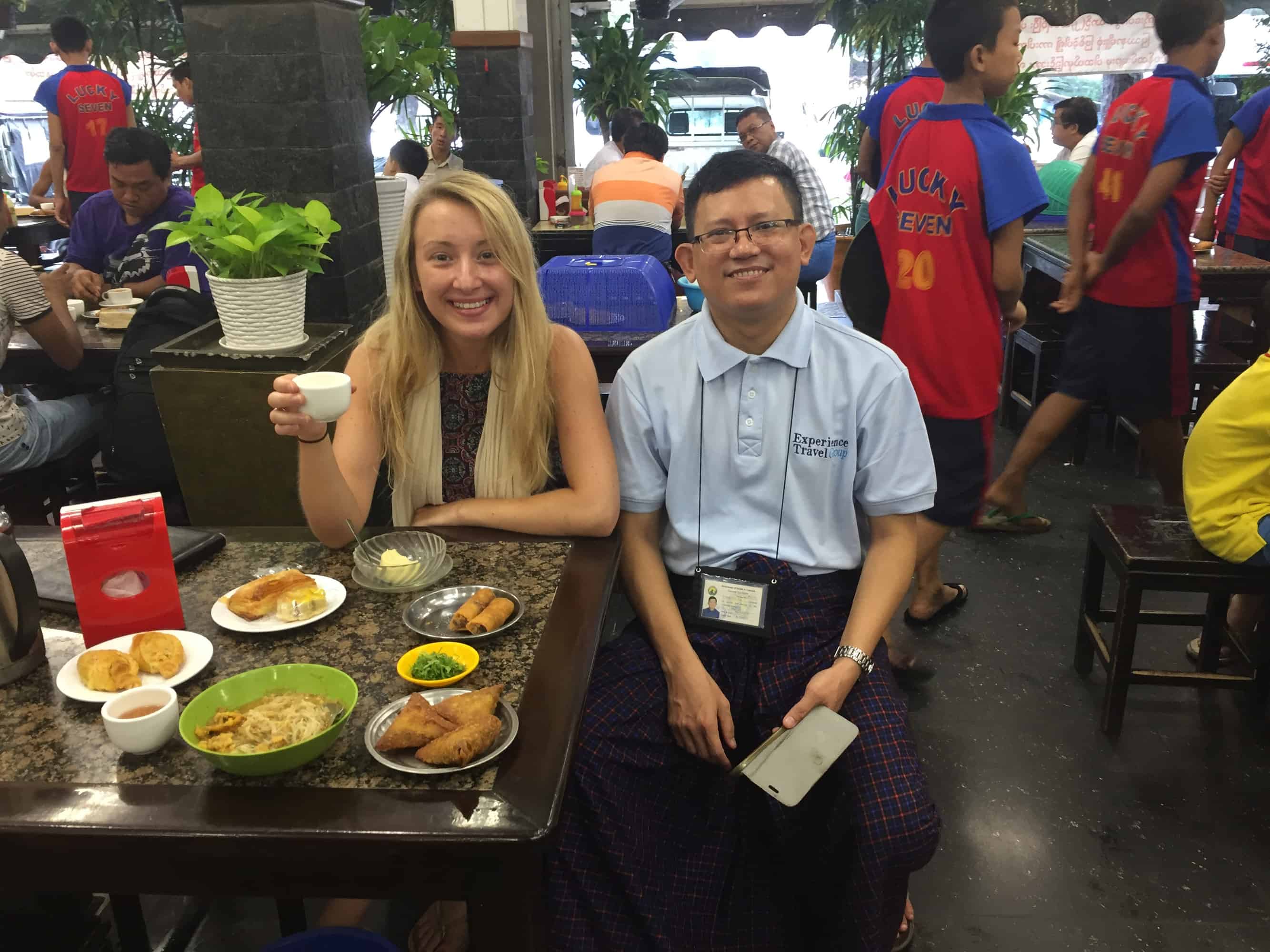
The tipping system doesn’t serve our customers or our colleagues
I became convinced that it is a system that doesn’t serve our customers or our colleagues in Asia. A majority of British (and I would guess – French and other Europeans too) find the whole tipping process tortuous and awkward. It can add considerable stress to the end of an excursion or trip and can put a barrier between the customer and their guide when a guide’s job is to break down those cultural barriers for their clients. We knew from our local partners that tipping caused issues from the guide’s perspective too, but we struggled with how to solve them. For example, guides were unwilling to take on longer itineraries (the daily tip amount tends to go down for a longer trip as the total feels huge to the client – but guides expect to work every day in season). Guides complained about not being tipped for ‘days at leisure’ or even tried to persuade their clients to do something (guides are still working away from their families, even if we choose to have a day at the beach) and the clincher: guides showed a big preference for our American customers over the British (sorry guys, our American friends tip FAR more than us despite receiving the same guidelines!).
Being transparent
I’ve also had a nagging sense that as an industry, we are not being entirely open and transparent. We talk about ‘suggested’’ tipping amounts as if it were a truly optional extra. In most countries in Asia, it’s not (Thailand and Singapore are notable exceptions). Most guides in Asia expect a decent tip at the end of the day. You might have spent the best part of your life savings on the trip upfront, but that guide will likely view the tip as an essential part of their daily wage and have expectations accordingly. Guiding is a profession, and it requires a great deal of investment in training, travel (necessitating long periods away from their families) and often a vehicle as well. Some people tip very well and some less so. Should habitual high tippers subsidise the rest of us?
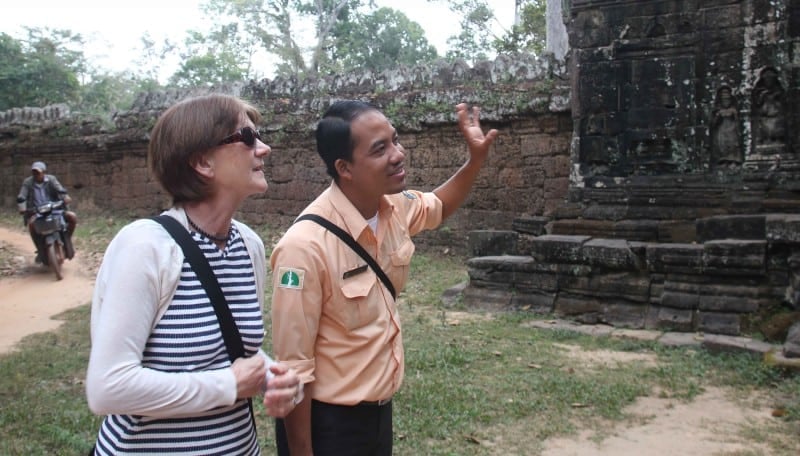
We don’t pay commissions for our consultants on principle: is this the same?
The ‘aha’ moment came when we cancelled the commission scheme for our travel consultants. We wanted them to be able to focus on building the best trips for our customers, without being distracted by a higher value trip they were working on at the same time or being under pressure to persuade a customer to commit to an imperfect trip because they had bills to pay at the end of the month. We had studied Dan Pink’s theories on motivation and agreed that money was not a great motivational tool over and above ‘a fair day’s wage’– and that bonus schemes had unintended consequences. What if the same was true for our guide colleagues? What if the main justification for tipping – the incentive to provide excellent service – was in fact not an effective incentive at all?
The problem was that this form of practice is thoroughly ingrained in our industry. I know of some group tours that include tips, but none in the ‘tailor-made’ sector (or FIT – ‘free independent travel’ as the industry jargon has it) at least none outside the uber-luxury level. Did we really want to rock the boat when we could just opt for the quiet life and stick with the status quo? The tipping system didn’t feel quite right nor sustainable and – as well as wanting to do right by our wonderful guides – we suspected that the current situation was actively detracting from the quality of our clients’ travel experience.
Never one to shirk a challenge, we embarked on a journey to see what could be done about it.
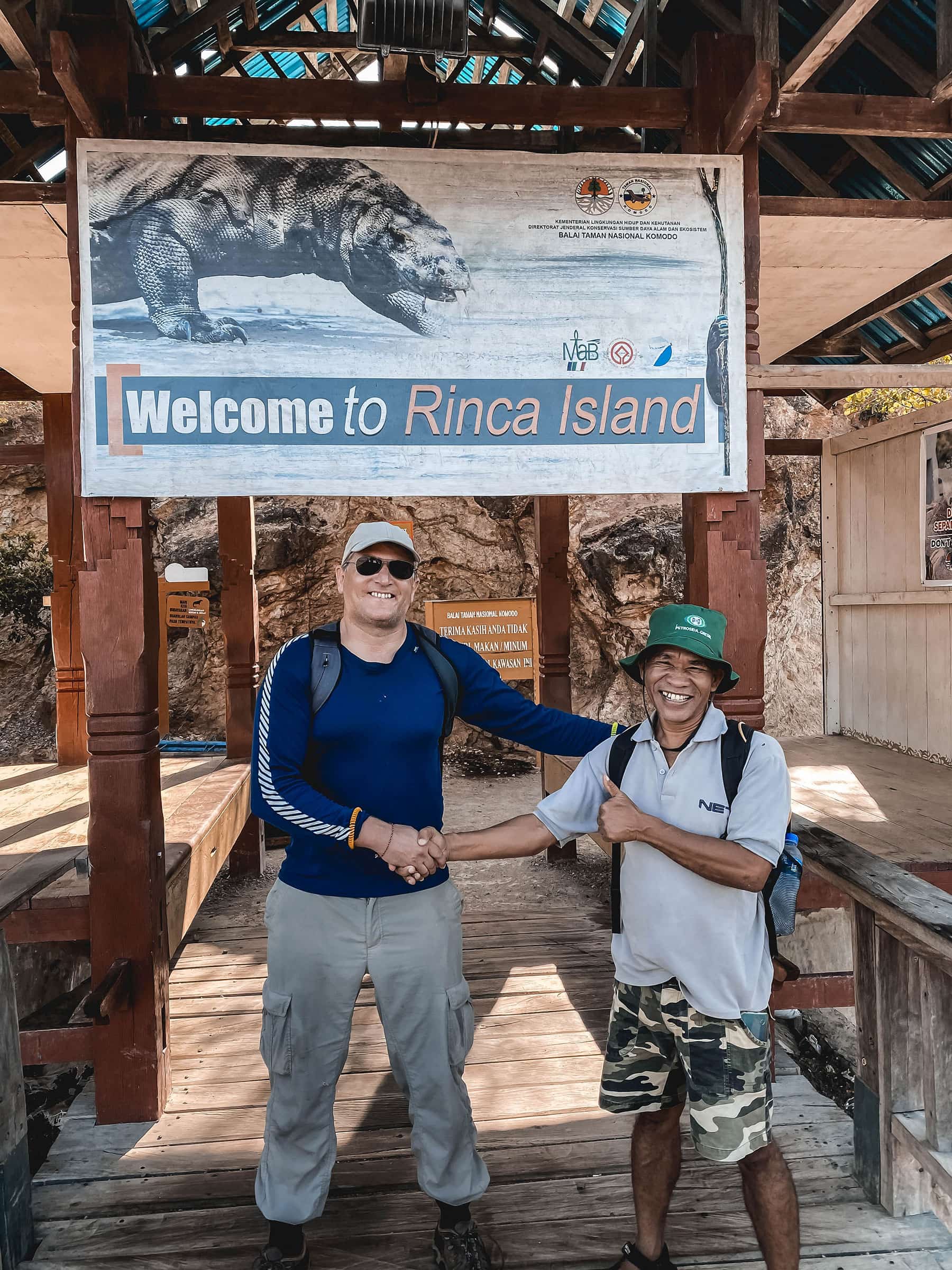
How We Started Looking at Tip Inclusive Holidays
We decided after much consideration, that ‘tipping inclusive’ bespoke, private holidays would greatly improve our customer experience, our holidays generally and would be beneficial to the lives and well-being of our guides. We had decided that it was the ‘right’ thing to do and it should be relatively straightforward to implement right? Erm… In a word, no! This is the story of what we did next.
Research with the ETG Community on the ‘Tip Inclusive Holiday’
Firstly, we talked to our local partners, asking them about the problems and benefits they associated with tipping. We also discussed the possible mechanics of including a tip up front or raising salaries or day rates to a level where the tip stopped being an integral part of a guides expected income. We studied the different cultural norms on tipping across our destinations. We also aggregated our guidance for ‘suggested tipping’ across our region and found that it came to a whopping £30 per day per couple on average over the course of a 14–day holiday, once you included drivers, daily guides, local site guides and so on (ranging from close to zero in Oman to £50 per day in Bhutan).
Following that, we talked to our clients, surveying a panel of 30 customers about our idea of tipping-inclusive holidays. We gave them zero background context and simply asked them to answer a series of questions. We also consulted our guides themselves. We ran a full day session with 30 guides in Vietnam, hijacked a training seminar in Sri Lanka and individually surveyed guides in India, Indonesia, Cambodia, and Indonesia too. Finally, in 2018, we trialled a set of holidays in Vietnam in which we pre-paid the tips upfront and asked our clients not to tip locally. We wanted to see how things would play out in reality.

What We Learnt From our Tipping Investigations
Our sample panel of customers were 80% in favour, with 10% neutral and 10% against tipping-inclusive trips. Those in favour cited the embarrassment and awkwardness around tipping most frequently. Some mentioned their ‘surprise’ at the very high ‘suggested tips’ locally and one suggested that this ‘could be seen as unfair’. That said, no-one blamed ETG for this state of affairs – feeling that it was ‘the way it works.’ Others mentioned feeling stress when working out who should be tipped or not and assessing the ‘right’ amount was an issue for almost everyone. One of the neutral respondents said that they didn’t have a problem with tipping themselves but could see some benefits to our idea. Another person in favour of the idea mentioned that he would be concerned about the tip not getting to the guide and worried for us that it would make our holidays less competitive. The people against tipping-inclusive thought that the tip was a useful motivational tool, and without it the guide would be unlikely to perform at the highest level. One of them said they enjoyed tipping.
From a sample size of about 60 across our destinations, guides were 90% in favour. We suggested an amount to them which was roughly half the lower–end of our suggested tipping range – so considerably less than they would expect from many clients normally. The main thrust of the feedback was that a ‘bird in hand is worth two in the bush’ and that it would mean they could relax and focus on the job, knowing that the tip was guaranteed. A few of them suggested that waiting for a tip at the end of the day was slightly demeaning and that they would rather not do so. A small number did say that they enjoyed the element of ‘working for a tip’ and found it motivational.
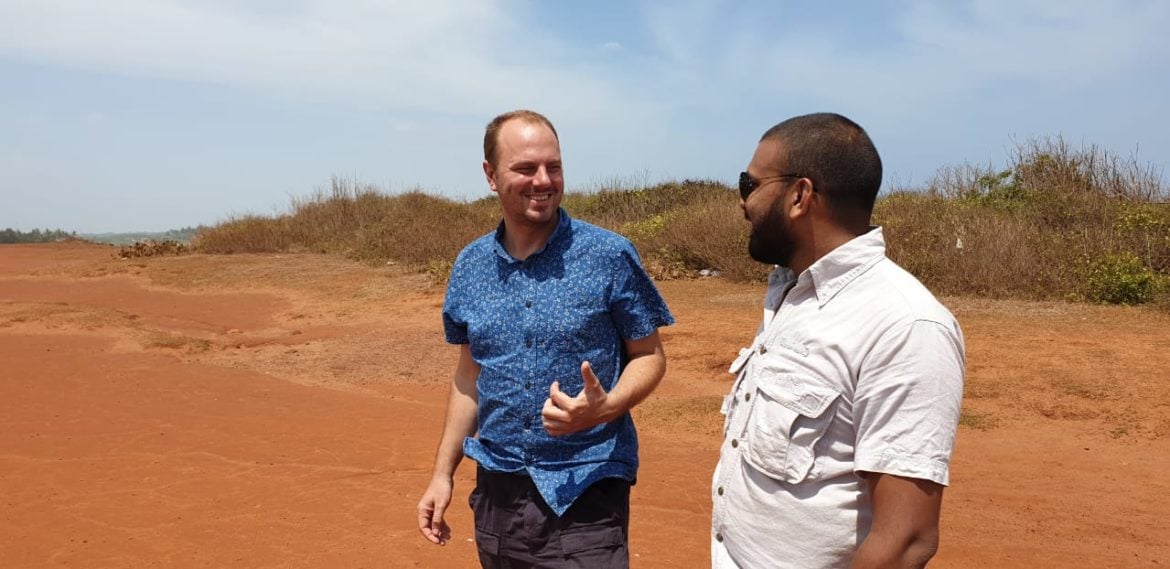
Events Kept getting in the way of the Launch
We finished our test–and–research in early 2019 but decided the time was not quite right to implement this radical change. We intended to look again in the summer of 2019. Disaster struck with the Sri Lanka Easter bombings and we needed to focus all our efforts on recovery from that. We postponed the launch again until spring 2020 – and we all know what happened next… That said, our local partners in Vietnam (where we carried out the test) and many individual guides chased us through this period to ask when we were going to implement the scheme as they were strongly in favour.
Our last stage was to talk through the way it would work in detail with our local partners. We anticipated cultural differences and needing to make allowances for those. By and large we were able to iron out the challenges, work out a system to ensure that our guides saw this additional amount in their wages, and decide if there were any countries where it would not work. We decided to roll out the system out everywhere, with exceptions for Oman, Singapore and Hong Kong. The reason in those cases was that the guides were already paid sufficiently to mean they were not reliant on tips to top up their daily wage and tipping truly was optional and not-expected.
We were ready to go!

What are the benefits of a Tip Inclusive Holiday?
We believe that the benefits of a tip inclusive holiday in Asia greatly outweigh any disadvantages. These benefits are the reasons why we are the first UK travel company to implement tip inclusive, private tailor-made holidays. It is an example of a win-win situation: the local guides benefit from the greatly enhanced certainty around their wage and our customers get a better holiday experience at no additional cost (on average).
We have summarised the main benefits of a tip include holiday as follows:
- The full costs of your holiday will be fully understood in advance and upfront (before even making a commitment). You can also read our in-depth costings page to understand what goes into the full cost of a holiday.
- Any confusion or awkwardness over tipping will be avoided, meaning you can relax and enjoy the experience
- If you have a particularly good experience you can genuinely just say thank you without worrying about money (one guide said thank you cards meant more to him than a tip)
- At its best, the guide/traveller relationship is about opening a temporary window into a local culture. We hope this initiative will enhance that relationship by taking it off a transactional footing
- Our colleagues in Asia will be able to plan financially with more ease and certainty
- We believe it will positively impact on our guides’ general well-being and mental health
- We believe that we can better motivate our guides using detailed feedback, gestures of genuine appreciation from clients and an annual guide award programme
What problems could there be with Tip Inclusive Holidays?
During the course of our research there were potential problems raised by our customer panel. We also picked up some issues during the ‘trial’ period. I wanted to address them here alongside solutions put in place or the rationale behind our decision to put the concern to one side.
The questions can be summarised as follows:
- Will some guides lack motivation?
- Will customers be put off booking by the additional upfront cost of the holiday?
- Will there be confusion about who to tip and who not to tip, since ETG cannot include tips for hotel staff?
- Will the guides actually receive the full tip or will it simply become a ‘service charge’?

Will guides lack motivation without a tip?
We believe a tip is a poor motivational tool, not least because there is no direct correlation between performance and reward (or a loose one at best). Simply put, some people tip more than others, whatever the performance of the guide. Most tip what they feel to be the ‘right’ amount whatever they feel about the quality of the guiding itself (especially British people!).
Instead, we will continue to ensure our guides are well–trained, follow our code of practice and receive regular feedback on their performance. We will also endeavour to pass on feedback and comments from clients and be more regular with our awards programme to show appreciation for outstanding service. We believe that this, along with their pride in their country, region and profession will be a better motivational tool than discretional tipping.
The certainty around being well remunerated will mean we have more highly motivated guides in general. We have seen this work with our travel consultants when we abolished commission – why would the same not be the case for our local guides?
Our most important motivational tool is welcoming our guides into the ETG family – in other words, making them feel part of the team and imbuing them with a clear sense of purpose – to help our clients make their travel count.
All that said, we will always refund a customer the full additional ‘tip’ if, for any reason, they are unsatisfied with the conduct of a guide or a driver. We will reserve the right to withhold the additional ‘tip’ amount from the guide too in certain limited circumstances, which should also provide some additional motivation (this was requested by several of our local partners).
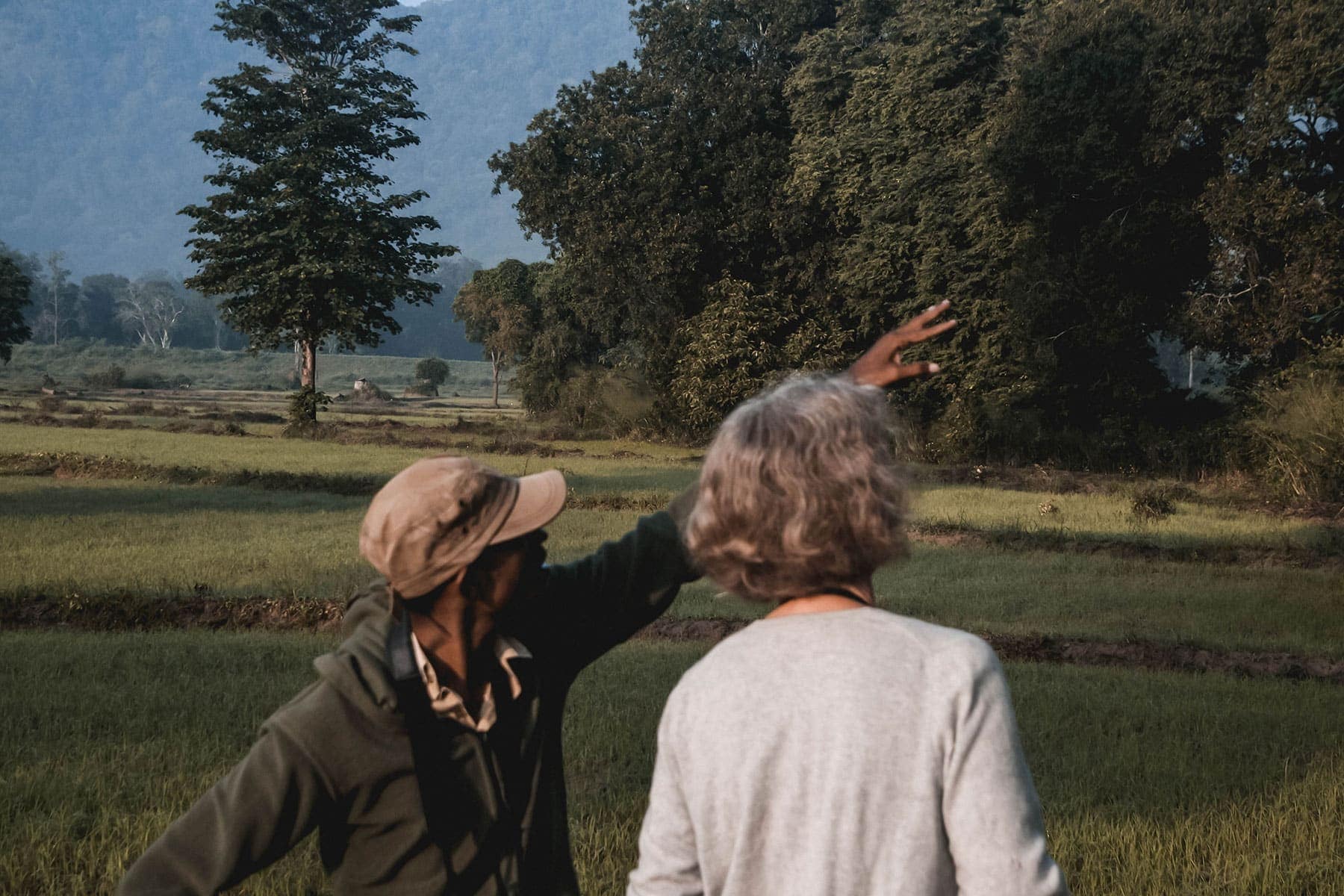
Will customers be put off booking by the additional upfront cost of the holiday?
Our honest answer is that we do not yet know for sure. However, we think the upfront cost will be more than offset by the additional tip’s customers would have had to shell out during their holiday. Moreover, there will be massive benefits to our customers as outlined above. We think the extra upfront cost will represent great value.
Is anyone not included?
We have pre-included an additional ‘tip’ amount on top of the fixed daily wage for anyone delivering an experience that we are arranging directly. That means our guides, our drivers, our local site guides, and people such as the boatmen in water–based excursions or support staff on cycling trips. Every member of a team that you come across as part of a pre-arranged excursion or trip.
Tipping hotel staff
We cannot include tips for hotel staff, although they might still expect something. We have no control over this, except to say that we do not recommend giving individual tips at any hotel. If you wish to give something, we suggest that following the modern habit of leaving it in the collective box at the end of your stay, is much more equitable. It will be appreciated by staff at any hotel, but you are under no obligation and it won’t be regarded as essential to their day’s work in quite the same way.
If an ad hoc excursion is led by a hotel/safari camp/cruise staff member, the tip will not be included but tips in these circumstances are never expected (they’re usually covered by a service charge), and can be paid into the collective hotel tip box at the end of your stay.
Finally, overnight boat trips and public transportation such as trains and planes are not included as it is just not practical (or necessary) to include these areas.
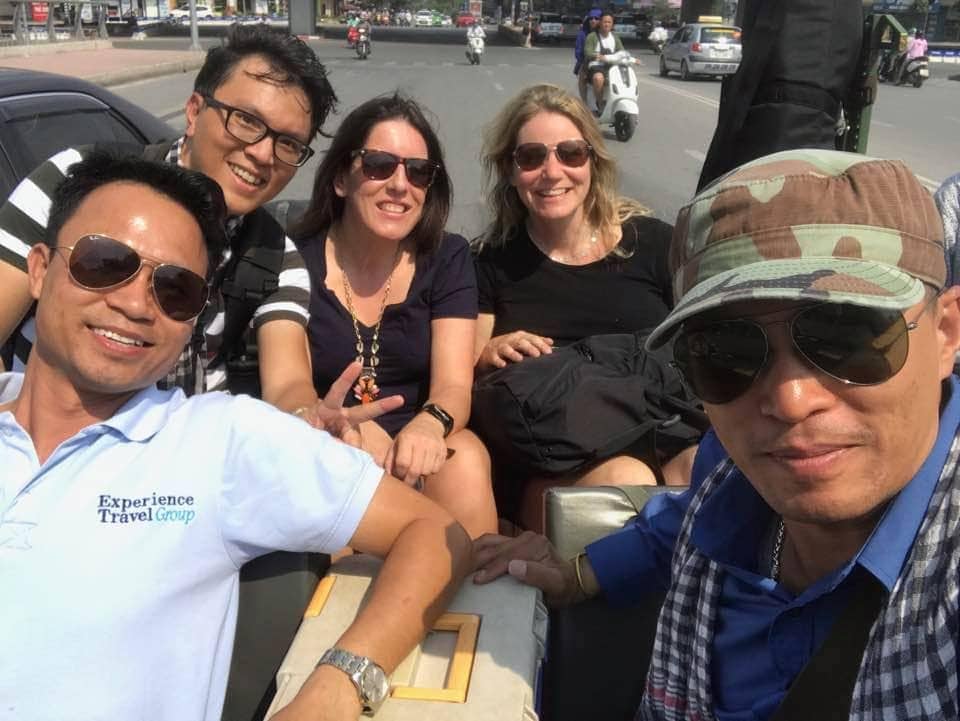
Will there be confusion about who to tip and who not to tip, since ETG cannot include tips for hotel staff for example?
There may very occasionally be some confusion. Please bear with us if this happens. In countries where tipping is ingrained, you might get a request for a tip from someone involved in the periphery of our excursions. For example, in India, you are obliged take a government ‘park guide’ on safari. They are randomly allocated at the time and we have no control over whom that will be. However, these tips will be trivial amounts.
You can always ask your ETG guide if unsure and we think these situations we will be very unusual.
Will the guides receive the intended tip?
Yes. This has been negotiated and legally contracted with our local partners and service providers on the ground. We can promise you that if this were not the case, we would have a revolt on our hands! The guides will know about this and understand the situation fully. As mentioned, tips are an integral and essential part of a guide’s income throughout the destinations in which we operate (with the exception of Oman, Hong Kong and Singapore – all omitted from our initiative).

So Why Now?
Well, why not!? We have less going on in terms of new bookings right now, so it seems the perfect moment to put this to the test and roll it out. The mechanics and logistics are complicated, so we’ve been working diligently behind the scenes to make it work. If, as we believe it will, this system improves our holidays for our customers and the lives of our guides, why would we not push on ahead as soon as possible?!
It is worth mentioning too that COVID-19 has meant that the local guides are in a very insecure position; many have had zero income from guiding for over a year. Many guides, perhaps the majority, have found employment elsewhere. Giving them additional financial certainty about what they will earn from a tour will enable many to return to the profession and do what they love. It has also been suggested that people may prefer not to handle bundles of notes in the same way as previously, although we do not think this is a major consideration.
As of 17th May 2021, all new ETG holiday proposals will be ‘tipping inclusive’. The cost will be wrapped up in the total holiday price. There is a list of FAQs here for your reference. But we’d like to highlight our promise:
“We guarantee to refund £30 a day (an average rate to keep things simple) if you request it for any reason at all, with no further questions asked.”
Note that if your holiday proposal was made before this date, it will not be ‘tipping inclusive’ and will proceed with the normal system. If you would like us to quote for adding this to your holiday then please contact your consultant.
And Finally…
We are proud and excited to be launching this and a little nervous too, particularly about the additional cost to our holidays upfront, but also about how it will all work in practice. It won’t be seamless: it never is when you do something radically different. We think that some of the bigger players in our sector industry may not like it either.
What we ask is that all our travellers get involved and tell us what’s working, what’s not and how we can improve our service and our holidays. Please talk to the guides, talk to your consultant, ask them questions and together we can make your travel really count.
DO YOU HAVE ANY QUESTIONS ABOUT TIP INCLUSIVE HOLIDAYS?
Get in touch on 020 7924 7133 or read more on the benefits of tip inclusive holidays.
Alternatively, fill out an online enquiry form to start your journey.

